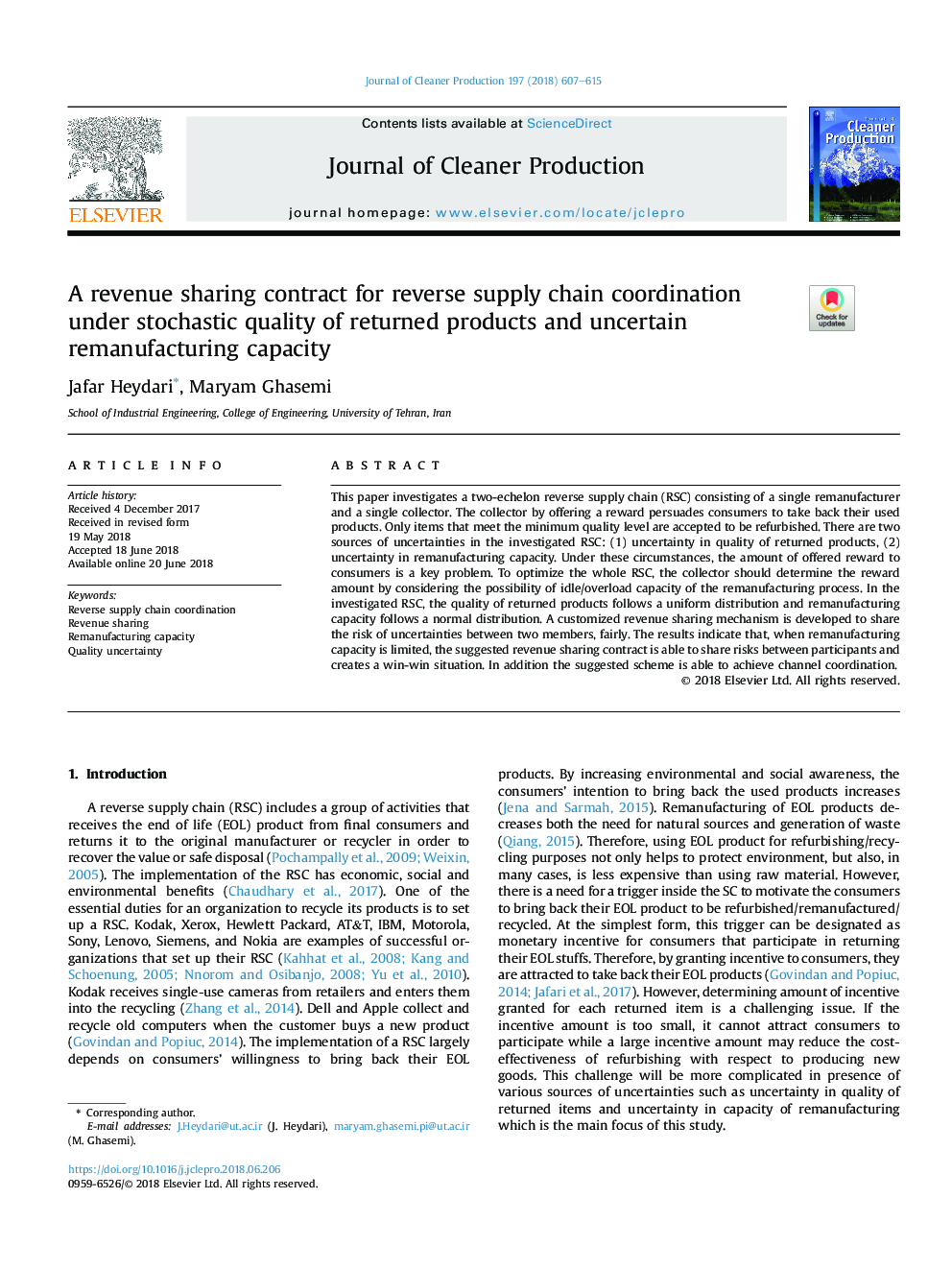| Article ID | Journal | Published Year | Pages | File Type |
|---|---|---|---|---|
| 8093996 | Journal of Cleaner Production | 2018 | 9 Pages |
Abstract
This paper investigates a two-echelon reverse supply chain (RSC) consisting of a single remanufacturer and a single collector. The collector by offering a reward persuades consumers to take back their used products. Only items that meet the minimum quality level are accepted to be refurbished. There are two sources of uncertainties in the investigated RSC: (1) uncertainty in quality of returned products, (2) uncertainty in remanufacturing capacity. Under these circumstances, the amount of offered reward to consumers is a key problem. To optimize the whole RSC, the collector should determine the reward amount by considering the possibility of idle/overload capacity of the remanufacturing process. In the investigated RSC, the quality of returned products follows a uniform distribution and remanufacturing capacity follows a normal distribution. A customized revenue sharing mechanism is developed to share the risk of uncertainties between two members, fairly. The results indicate that, when remanufacturing capacity is limited, the suggested revenue sharing contract is able to share risks between participants and creates a win-win situation. In addition the suggested scheme is able to achieve channel coordination.
Keywords
Related Topics
Physical Sciences and Engineering
Energy
Renewable Energy, Sustainability and the Environment
Authors
Jafar Heydari, Maryam Ghasemi,
